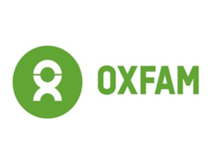Company Profile
Oxfam is a rights-based global development organization with more than 70 years of experience in more than 90 countries worldwide. Oxfam’s mission is to end the injustice of poverty and inequality through systemic change and the advancement of political, economic and social rights. Oxfam has been working in Ghana since 1986, managing programs related to food security and livelihoods, universal access to education and healthcare and transparency and accountability in extractive industries (mining, oil and gas).
Oxfam’s experience in Ghana and strong partnerships with government institutions, Ghanaian civil society organizations and NGOs supports the delivery of active and innovative programs and advocacy work seeking to improve the livelihoods of Ghanaians and strengthen citizen accountability. Oxfam in Ghana currently works in 11 out of Ghana’s 16 administrative regions.
Job Description
TERMS OF REFERENCE TO CONDUCT A GENDER RESEARCH WITHIN THE COCOA SUPPLY CHAIN: THE ROLE OF GOVERNMENT IN GENDER MAINSTREAMING
THE BEHIND THE BRANDS 1.1
Introduction to the Research
Globalization of supply chains of food and beverage (F&B) companies has drawn millions of women into paid employment across the developing world. These women are mostly small-scale farmers and plantation workers found at the base of the supply chains.
In 2013, Oxfam initiated a groundbreaking campaign, Behind the Brands, to challenge 10 of the largest food and beverage companies in the world to improve their economic, social, and environmental performance. This initiative has drawn the support of almost a quarter million advocates and spurred well-known companies to make unprecedented commitments: for instance, Mars, Mondelez and Nestle committed to tackle gender inequality. Since then, Oxfam has been engaging with companies to ensure that they follow through their commitments through the Behind the Brands Initiative.
Objective of the assignment.
The purpose of the research is to identify and ascertain the differences between and among women and men in terms of their relative position, work, ownership of property, distribution of resources, opportunities, constraints and power within the Cocoa supply chain.
Specific objectives are:
- Identify differences between and among women and men, based on the unequal distribution of resources, opportunities, constraints and power within the Cocoa supply chain.
- Identify the different needs of women and men and how they are addressed at all stages of the policy cycle.
- Map the Cocoa supply chain and indicate stages where women are more involved and what benefits they derive.
- Identify social norms that foster gender inequality.
Key questions for this research are:
- How are women being engaged within the Cocoa supply chain. i.e. what are the roles of women within the Cocoa supply chain.
- What are the different needs of women and men and how are they addressed at all the stages of chain? Are they backed by policy?
- How can the cocoa industry better value the contribution of women cocoa farmers? And how are they compensated for what they do?
- How is the government supporting training, providing access to finance, and establishing other pathways to women’s economic empowerment as a way of finding solutions to social norms that hinder equality?
- What opportunities exist for women’s voices to be heard throughout the cocoa supply chain (e.g. through cocoa cooperatives, through direct engagement with CSR programs), and how effective are these entry points in addressing gender inequality?
- Is any industry actors’ routine practice of disaggregating data by sex?
- Are there examples of good practice to addressing women’s empowerment in the cocoa sector building off Oxfam’s report in 2015?
- How are women participating in the social, political and economic lives of their communities?
Methodology
The researcher is expected to use an inclusive and participatory approaches to ensure the stakeholders take active part in the research to ensure learning and accountability. While it is expected that the main source of information will be existing documentation, additional research to cover any information gap will be needed. This can be done through involving staff of the MMDAs in the cocoa sector and additional information gathering, remote interviews, focus group or validation group discussions, field trips to selected communities and interview with stakeholders by using questionnaires.
Results of The Research:
At the end of the research, the researcher is expected to present,
• A completed report of not less than 30 pages
• And a policy brief of not more than 10 pages
Scope of Assignment:
- Sign an agreement with Oxfam
- Carry out a desk review of existing literature and documentation on gender inequality within the cocoa supply chain, including existing research and evaluations carried out by Oxfam.
- Design and formulate the research methodology, including interview protocols for private sector actors, CSOs, government and focus group protocols for farmers and workers.
- Conduct a pilot on the designed questionnaires before implementation of the final plan. Plan and carry out fieldwork, in consultation with Oxfam counterparts.
- Prepare a draft report of findings; carry out a validation workshop with Oxfam staff and relevant external stakeholders.
- Revise and prepare final report of findings, using the right template and in accordance TOR.
- Undertake field visits to communities to interview women and men farmers.
- Check in weekly on the progress of work through regular meetings or calls.
- Abide by Oxfam policies for research, engaging with communities, and protecting data.
Eligibility
Applicants should have demonstrated expertise in supply chain sustainability and agricultural commodities, specifically in the cocoa value chain; varied experience in relevant methodologies; and a history of undertaking similar research requirement. Applicants with experience in working with the government or any state institution on similar research will have an added value. Applicants should be based in Ghana.
